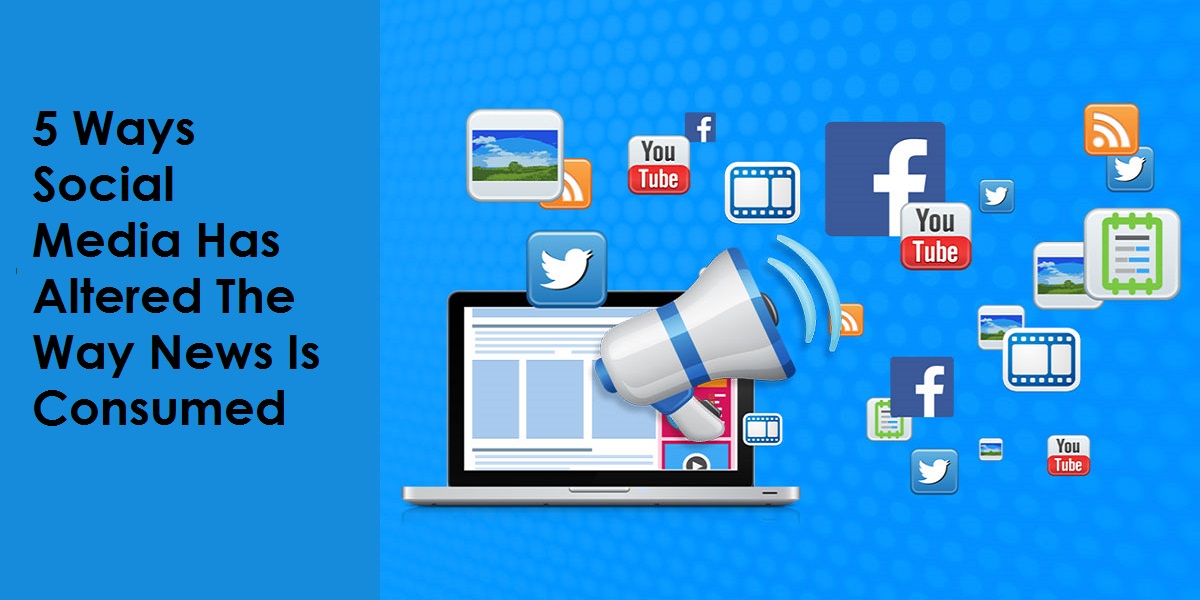
According to a report by Statista, 70% of people around the world have admitted to using social media as a source of news. This, in fact, speaks volumes about the way social media has changed how we consume news and how it’s presented.
The use of social media networks has fundamentally altered the landscape of news consumption. Social media is the place where audiences can access the news stories they want to see. In fact, thanks to the advanced algorithms adopted by the prominent social media channels, consumers can access the news from their preferred news media outlets quite easily.
So, let’s ponder over in detail how the news consumption has changed over the years and how the news organizations have adapted to these changes.
1. Social media has emerged as the new gatekeeper
Our way of consuming the news has changed drastically. The time when people huddled in front of their TV sets to watch the news anchors review the “evening news" is history now. The same can be said about the people reading newspapers over a breakfast table, or listening on the commute to work each day. The way we consume news has evolved since social media came into our lives as a new gatekeeper.
As has been indicated by countless studies, people are now consuming news from Facebook, Twitter and YouTube. Without having to tune in to TV, you are just scanning your social media feeds for information. This highlights that social media has a profound impact on what type of news we consume.
2. News reaches faster than ever before
Finding the breaking news is possible with one simple click now that social media is at play. Sure, this sometimes results in the occasional fact-checking issues. But it also means that people expect news faster, and news organizations must adhere to that expectation. If an event worthy of news takes place, journalists can tweet the news on the go.
“The advantage for journalists using social media is that they can to develop a reputation through their presence”, believe clara, an academic essay writer from allessaywriter.com. Users are more likely to consider their news credible if they have an active Twitter or Facebook profile to match their byline. If they’re accessible to their audience as well as your organization, users are more likely to have faith in your source.
3. Social media provides journalists with increased access to news
Social media has enabled journalists to have unprecedented access to their audience, bringing them closer than ever to the story ideas that their viewers or readers care about. Viewers are no longer passively waiting for a news anchors to tell them the news. They’re already on Facebook or Twitter, scrolling through content and sharing stories with their friends and family. All of this makes social media an ideal place to carry out research and develop connections that may not have otherwise come about.
4. The news cycle is now 24x7
At one point, you only needed to pick up one of those weekly news magazines carefully curated all the top events of the past seven days. News, when it happened previously, was relatively slow. A newsworthy event may be highlighted on a Monday, and you would still be alright if you only “caught up” on a Friday. But the delayed gratification has been conveniently forgotten since the advent of social media.
But that is not the case anymore. News organizations today need to provide instant gratification to the consumers as and when an event unfolds. News organizations have realized that. Hence, they’re now proactively positioning their news updates and are encouraging people to consume it the same way they consume social media posts.
5. Brings a personal approach
Social media, particularly Twitter, has provided journalists with an opportunity to create a public profile that would've been extremely difficult (if not impossible) even a decade ago.
As a journalist, having a social profile lets readers put a face to a name, and lets them get to know the journalist on a more personal level. The set of audience that journalists garner today will not only look up to their work but also hold the news organizations in regard. However, the downside of this personalization is that social media also makes it convenient for unhappy readers to reach out to journalists they disagree with.
Wrapping it up,
News is all about instant gratification now. Today’s news becomes tomorrow’s forgotten story too quickly. So, having an abundance of information at our fingertips is a blessing. But distinguishing the genuine news from the fake ones has been difficult for many people. This is why it’s important for users to indulge in responsible consumption and trust only the verified news source.
